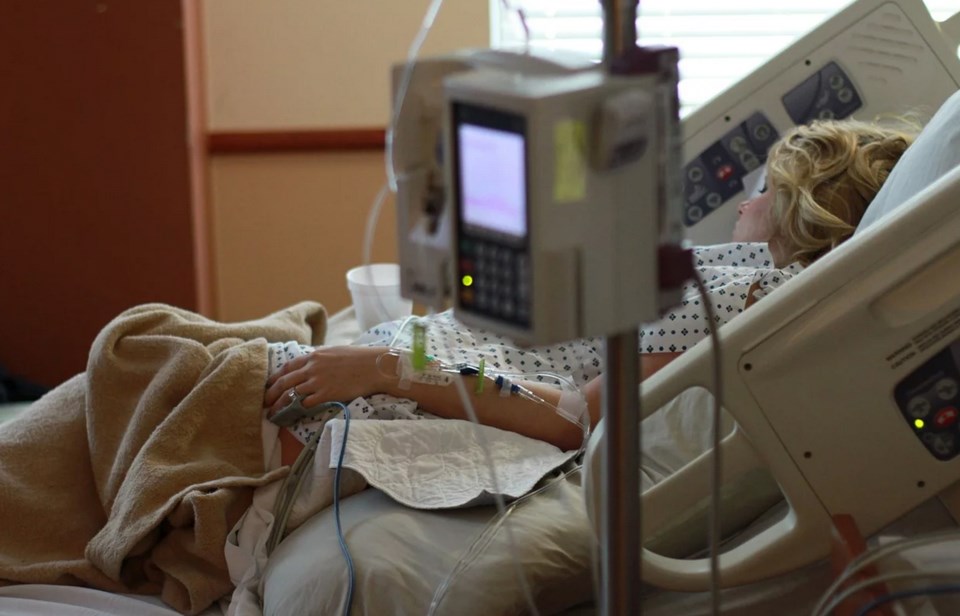The B.C. Civil Liberties Association this week gave its take on legislation the federal government tabled to amend Canada’s Medical Assistance in Dying (MAID) law, Bill C-7, calling it an overall improvement on the current law but with some major flaws that must be addressed.
“The short story is that the new MAiD law is a mixed bag for civil liberties and patients’ rights. The good news is that patients with chronic, degenerative diseases, like MS or locked-in syndrome, are not flatly barred from choosing MAID. That change is long overdue and comes as no surprise, given that a Quebec court declared that part of the law unconstitutional last year. Patients with chronic, degenerative conditions who may face years of agony will know that MAiD is option if their suffering becomes intolerable,” said Grace Pastine, litigation director for the BCCLA, in a news release.
“We’re also pleased that the government accepted Audrey’s Amendment for some patients – which will waive the requirement for final consent for those patients who are eligible and approved for MAiD but who lose capacity before the procedure is provided. This means that eligible patients will not need to make the cruel choice between spending a few more days or weeks with their loved ones or ending their lives before they’re truly ready out of fear they will lose capacity before MAiD can be provided. It will also mean that people will not need to refuse pain medication in order to retain capacity or lose access to MAiD simply because they unexpectedly lost capacity while waiting for their provider.”
Pastine noted that, however, the new law is overly complex and adds additional, confusing hurdles for some patients.
It flatly bars other patients, in particular, those deemed to have mental illness as their sole medical condition from eligibility.

The B.C. Civil Liberties Association said there's no need to make it more difficult for some patients to have a compassionate dying process
Patients whose natural deaths are not “reasonably foreseeable” must wait a 90-day waiting period, while the previously required 10-day waiting period has been removed for patients whose natural deaths are “reasonably foreseeable.”
The Liberal government tabled legislation in late February aimed at amending rules on MAiD, repealing the requirement that someone’s death be "reasonably foreseeable" but disqualifying people whose sole underlying condition is a mental illness.
The proposed amendments would allow waiver of final consent for eligible persons whose natural death is reasonably foreseeable and who may lose capacity to consent before MAiD can be provided.
As far as those with mental illness, the government stated changes could be considered during a broader parliamentary review of MAiD legislation expected to begin June 2020.
Last September, a Quebec judge declared the federal law on MAiD was unconstitutional in that a patient must face a "reasonably foreseeable" death before seeking medical assistance in dying.
The government subsequently launched a public consultation ahead of the court’s ruling that will come into effect on March 11, 2020.
When the legislation was introduced, Delta MP Carla Qualtrough said they heard concerns the disabled could be threatened by expanded access to MAiD.
She said safeguards are included so that people know their options such as counselling and palliative care.
Meanwhile, the Canadian Medical Association said the proposed amendments to the legislation is a prudent step forward and supports efforts to continue to provide greater clarity for physicians, and are especially pleased to see the addition of new non-legislative measures to create more consistency of MAiD delivery across Canada.
The CMA stated that it has maintained the need to balance three equally legitimate considerations: respecting decisional autonomy for eligible Canadians who are seeking access to MAiD, ensuring appropriate safeguards are in place and ensuring an environment in which physicians are able to adhere to their moral commitments.
Meanwhile, the B.C. government last week ensured MAiD will be available at the Irene Thomas Hospice in Ladner next year with the announcement the Delta Hospice Society’s contract and funding from Fraser Health will be terminated in February 2021.
Health Minister Adrian Dix said it’s possible the facility would be publically-run.
The board of the DHS, which revered a previous board decision to allow MAiD, said it’s now exploring its legal options.



